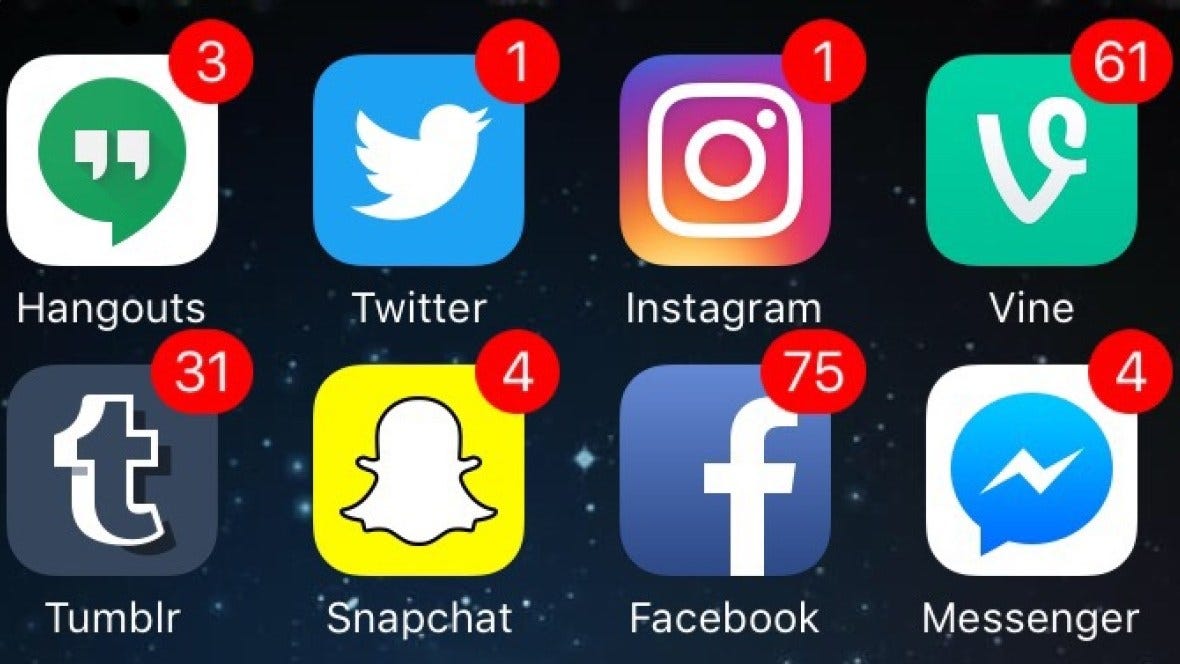“I’m taking a break from social media” – every person alive, at some point, probably…
A very common phrase that is uttered nowadays. The weight of having that device in your pocket that constantly blasts you with notifications and information about everything you didn’t know you don’t care about has become overwhelming for a lot of people (myself included) and this recent phenomenon is something which long-term effects are thus far uncharted and one could therefore only speculate of the horrors that are to come.
The fact is that social media platforms, Facebook, Twitter and Instagram are gaining users exponentially, and it isn’t hard to imagine a future world where social media lays as the cornerstone of human communication. Yet, every light has its shadow and it is this shadow that we are starting to witness to an extreme extent, particularly in the past few years.

You notice the image above and immediately get a spike of stress in your body. This is what has developed among the general population of the world, and when taking its most extreme form it leads to the increasingly depressed society we have right now. But is it our own fault for undisciplined indulgence or do the social media giants stand at fault for this?
I think I can speak for every social media user when I say that there’s been times where you’ve been scrolling through Instagram or browsing Facebook, catching eye on a certain post thinking “why the **** is this showing up in my feed?” The algorithms the developers have created seem to have large inconsistencies that almost everyone has questioned when they have been affected; it makes us reflect if the feeds are a display of our subconscious interests or is it plain random?
Regardless of the above, it is evident that the reflection is a form of affection that has been directly thrown at us which means that in one way or another, consciously or subconsciously, it affects us through the information we take in as a direct consequence of these modern day feed algorithms. This information can lead to debates between individuals – purely because of things showing up in their feed that they have no fundamental understanding of what it is doing there in the first place.
When it comes to people taking breaks from social media, I believe a lot of the reasoning lays in the information taken in by the content that shows up on our feeds. You can make the argument that the algorithms are written to appeal to our interests, but you can just as well state that they are a form of modern-day propaganda in the sense that it fills us with the knowledge we don’t necessarily crave to learn, all of this without our knowing. Since we’re still in the experimental period of social media, I can only speculate of the immensity these algorithms will carry in future social media usage.
References
De Choudhury, Munmun, Michael Gamon, Scott Counts, and Eric Horvitz. “Predicting depression via social media.” ICWSM 13 (2013): 1-10.
“How Heavy Use of Social Media Is Linked to Mental Illness.” The Economist. May 18, 2018. Accessed November 12, 2018. https://www.economist.com/graphic-detail/2018/05/18/how-heavy-use-of-social-media-is-linked-to-mental-illness.
https://cdn-images-1.medium.com/max/1600/1*LlLmrdCAlfiz-LeoY0nQxA.jpeg


I can relate with this post – there have been so many times I’ve been scrolling through Facebook or Instagram only to see an ad which relates (too much) with my current life. I’m from Singapore and ever since coming to the Netherlands for exchange, all the ads on my social media feeds are either in Dutch or advertising for some Dutch store, it’s really strange! I guess these sites do have a complex algorithm based on our location/search terms/web cookies.
“The algorithms the developers have created seem to have large inconsistencies that almost everyone has questioned when they have been affected; it makes us reflect if the feeds are a display of our subconscious interests or is it plain random?”…. – Could it be that some websites or advertisement use frequently used meta-tags even thou they don’t relate to the add at all? This way they can manipulate the categorical hierarchy… (just guessing)..
I was writing my blog and after posting it I saw yours… ! So cool topic 😉